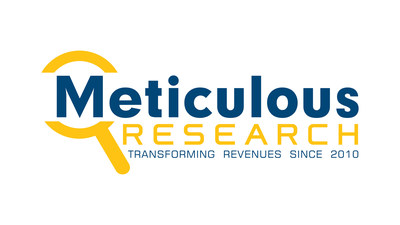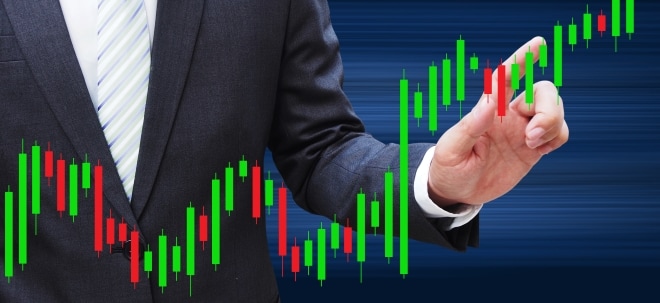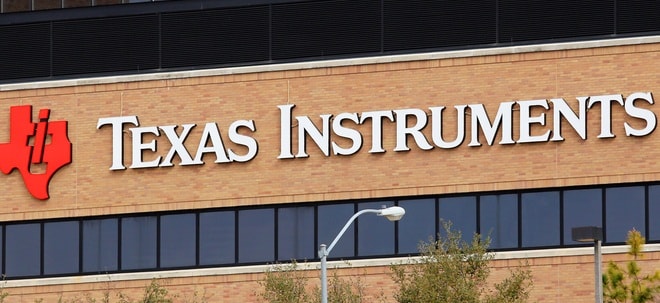Sustainable Fashion Market to Reach USD 48.4 Billion by 2032, Growing at a CAGR of 23.2% | Driven by Circular Models, Conscious Consumers & Sustainable Innovation--Exclusive Report by Meticulous R...
REDDING, Calif., April 16, 2025 /PRNewswire/ -- According to a new market research report titled "Sustainable Fashion Market by Product Category (Apparel, Footwear, Accessories, Home Textiles), Business Model (Traditional, Circular, Rental, Subscription), Material Type, Price Point, Distribution Channel, End User, and Geography – Global Forecast to 2032", published by Meticulous Research®, the global sustainable fashion market is expected to grow at a CAGR of 23.2% from 2025 to reach USD 48.4 billion by 2032, from an estimated USD 12.4 billion in 2025.

This report offers a detailed analysis of market dynamics, growth trends, competitive landscape, emerging innovations, and strategic investments driving the transformation of the global fashion industry toward more eco-conscious and ethical models.
Browse in-depth scope of Organic Farming Market Report:
578 – Tables
36 – Figures
312 – Pages
For more comprehensive insights, download the FREE report sample: https://www.meticulousresearch.com/download-sample-report/cp_id=6156
Rising Conscious Consumerism and Circular Business Models Propel Market Growth
The growth of the sustainable fashion market is largely fueled by growing environmental awareness, evolving consumer values, increased ESG commitments, and regulatory actions targeting textile waste and emissions. As consumers—especially younger demographics—prioritize ethical sourcing and transparency, on-demand production, digital traceability, and sustainable raw materials are shaping the new fashion frontier.
Innovations in bio-based textiles (e.g., mushroom leather, algae fibers), closed-loop production systems, and resale/rental platforms are disrupting the traditional retail structure, providing new value propositions for both startups and legacy brands. However, the market still faces challenges such as high production costs, limited raw material supply chains, and greenwashing concerns.
Apparel Leads the Market, But Footwear Set to Outpace in Growth
On the basis of product category, the apparel segment holds the largest share of the overall sustainable fashion market, primarily due to widespread consumer adoption across everyday wear, activewear, and casual categories. However, sustainable footwear—particularly athletic and performance shoes made with recycled and bio-based materials—is emerging as the fastest-growing segment through 2032. This growth is largely driven by technological innovation in biodegradable soles, plant-based leathers, and consumer demand for ethically produced yet stylish and high-performance footwear.
Mid-Range Price Products Dominate, But Mass Market Is Gaining Momentum
Currently, mid-range price point products account for the majority of sustainable fashion purchases, striking a balance between affordability, quality, and sustainability. However, the mass-market segment is poised for significant growth as major fashion retailers integrate sustainable collections into their core offerings. Improved economies of scale, retailer ESG goals, and rising consumer demand are lowering the price barrier, making sustainable fashion increasingly accessible to mainstream audiences. This shift is critical in democratizing ethical fashion beyond niche or premium audiences.
Request a customized research analysis tailored to your specific requirements: https://www.meticulousresearch.com/request-customization/cp_id=6156
Natural Fibers Lead, but Bio-Based Synthetics Are the Future
On the basis of material type, Natural Fibers segment, especially organic cotton, dominate the market due to established supply chains, biodegradability, and consumer familiarity. Meanwhile, innovative bio-based synthetics—such as mycelium (mushroom leather), pineapple fiber (Piñatex), algae-based textiles, and biodegradable polymers—are forecast to grow at the fastest rate through 2032. This growth is driven by growing investment in material science, rising brand experimentation with next-gen fabrics, and increasing regulatory scrutiny on traditional synthetics like polyester and nylon.
Online Retail and DTC Channels Are Redefining Consumer Engagement
Online retail, including both brand-owned DTC (direct-to-consumer) channels and third-party e-commerce platforms, holds the largest share of the overall sustainable fashion market in 2025. These platforms allow brands to control storytelling, provide transparent sourcing information, and deliver immersive consumer experiences that align with sustainability values. Consumers increasingly seek purpose-driven brands that communicate clearly and authentically about their environmental and social impact, and online channels provide the most agile and scalable way to deliver that narrative.
Circular and Recommerce Models Are Transforming Fashion Economics
The fastest-growing business models in the sustainable fashion space are circular and recommerce models, including resale, rental, repair, and take-back programs. These models are gaining rapid traction mainly due to digital platforms that enable seamless peer-to-peer exchanges, subscription-based rentals, and integrated logistics for used garments. Consumers are increasingly comfortable with second-hand fashion—motivated by both environmental concerns and affordability—while brands benefit from recurring revenue streams and deeper customer relationships.
Women Lead Adoption, While Gender-Neutral and Children's Segments Accelerate
On the basis of end user, the women's segment remains the largest consumer group for sustainable fashion, driven by early adoption, broader product variety, and stronger engagement with eco-conscious brands. However, gender-neutral and children's fashion are emerging as high-growth segments. The rise of minimalist and gender-inclusive aesthetics supports unisex fashion, while demand for chemical-free, safe, and organic children's clothing is growing among millennial and Gen Z parents. These trends reflect evolving consumer values around inclusivity, safety, and long-term sustainability.
Get Insightful Data on Regions, Market Segments, Customer Landscape, and Top Companies (Charts, Tables, Figures and More)- https://www.meticulousresearch.com/product/sustainable-fashion-market-6156
Regional Highlights and Key Findings
North America
North America represents one of the most dynamic and innovation-driven markets for sustainable fashion, accounting for a significant share of the global market. The U.S. leads the region due to a well-developed ecosystem of direct-to-consumer sustainable fashion brands, growing consumer emphasis on ethical consumption, and rising investment in ESG-aligned retail practices. The presence of resale and rental platforms like ThredUp and Rent the Runway is reshaping consumer behavior, while major brands increasingly embed circular economy principles into their core business models. Governmental and institutional sustainability goals, particularly in states like California and New York, continue to influence both consumer and corporate strategies.
Europe
Europe remains the global frontrunner in the sustainable fashion space, with countries like Germany, Sweden, France, and the U.K. leading through stringent regulatory policies, consumer awareness, and robust industry-wide collaboration. The European Green Deal, Extended Producer Responsibility (EPR) regulations, and high recycling targets are compelling fashion brands to prioritize sustainability from design to end-of-life. Germany and the Nordic countries, in particular, have made strong progress in scaling circular fashion models, ethical supply chains, and innovative material adoption. The region is home to several established and emerging sustainable fashion players, benefiting from a consumer base that values transparency, ethical sourcing, and minimal environmental impact.
Asia-Pacific
Asia-Pacific is projected to grow at the fastest CAGR through 2032, driven by a mix of rising environmental awareness, favorable policy environments, increasing disposable incomes, and rapid digitization. Countries like Japan, South Korea, and Australia are pioneering sustainable innovation, while China and India are rapidly scaling up eco-friendly production capabilities. The region's manufacturing dominance positions it strategically for global sustainable textile supply chains, particularly as brands seek cleaner and more efficient production hubs. Government incentives in countries such as India and Vietnam are encouraging the use of organic fibers and low-impact dyes. Additionally, APAC consumers—especially Gen Z—are showing strong interest in second-hand platforms, gender-neutral collections, and digitally enabled recommerce experiences.
Latin America
Latin America is an emerging hotspot for sustainable fashion, particularly in countries like Brazil, Mexico, and Chile. Local fashion ecosystems are increasingly embracing eco-friendly practices, indigenous materials, and community-driven production models. Brazil, with its large textile base, is witnessing a surge in sustainable material innovation, including recycled cotton and plant-based leathers. Government support for sustainable manufacturing and rising awareness among younger urban consumers are bolstering market development. Regional designers are also gaining international recognition for integrating sustainability with cultural aesthetics, positioning Latin America as a unique player in the global sustainable fashion narrative.
Middle East & Africa
The Middle East and Africa (MEA) region is still at a nascent stage of sustainable fashion adoption but holds untapped potential driven by rising urbanization, expanding youth demographics, and growing interest in ethical and sustainable luxury. The United Arab Emirates is emerging as a regional leader, with fashion weeks and innovation hubs emphasizing sustainability. South Africa is witnessing increasing demand for ethical fashion fueled by awareness campaigns and homegrown eco-brands. While the region faces infrastructural and policy challenges, local material availability and rising consumer consciousness are laying the foundation for future market growth. Collaborations with global brands and sustainable fashion education programs are accelerating adoption across both Africa and the Gulf region.
Immediate Delivery Available | Buy this Research Report (Insights, Charts, Tables, Figures and More)- https://www.meticulousresearch.com/view-pricing/1473
COMPETITIVE LANDSCAPE
The global sustainable fashion market features a diverse competitive landscape with established multinational fashion conglomerates expanding sustainable offerings and independent sustainability-focused brands gaining significant market share.
The key players operating in the global sustainable fashion market are Patagonia, Inc., Eileen Fisher, Inc., Reformation, Stella McCartney, H&M Group (Conscious Collection), Inditex (Zara Join Life), Kering Group, PANGAIA, Veja, Allbirds, Inc., Outerknown, Everlane, Mud Jeans, The Renewal Workshop, Ecoalf, ABLE, ThredUP Inc., Rent the Runway, Inc., Girlfriend Collective, and Nisolo among others.
Related Reports:
Low/Zero Waste Household Products Market
Biodiversity and Natural Capital Credit Market
About Meticulous Research
We are a trusted research partner for leading businesses worldwide, empowering Fortune 500 organizations and emerging enterprises with market intelligence designed to drive revenue transformation and strategic growth. Our insights reveal future growth opportunities, equipping clients with a competitive edge through a versatile suite of research solutions—including syndicated reports, custom research, and direct analyst engagement. Each year, we conduct over 300 syndicated studies and manage 60+ consulting engagements across eight major sectors and 20+ geographic markets, all to deliver targeted business insights that help our clients lead in a rapidly evolving global market.
With a strong focus on problem-solving for complex business challenges, our research enables organizations to navigate change with assertion, aligning it with strategic pathways for sustainable growth. By identifying innovative and effective solutions, we empower leaders to make impactful decisions that drive operational excellence and fuel innovation. We are committed to crafting insights that enhance business performance and help our clients unlock new revenue opportunities, positioning them for long-term success in the competitive global marketplace.
To find out more, visit www.meticulousresearch.com or follow us on LinkedIn
Contact:
Mr. Khushal Bombe
Meticulous Market Research Pvt. Ltd.
1267 Willis St, Ste 200 Redding,
California, 96001, U.S.
USA: +1-646-781-8004
Europe: +44-203-868-8738
APAC: +91 744-7780008
Email- sales@meticulousresearch.com
Visit Our Website: https://www.meticulousresearch.com/
Connect with us on LinkedIn- https://www.linkedin.com/company/meticulous-research
Content Source: https://www.meticulousresearch.com/product/organic-farming-market-6148
Logo - https://mma.prnewswire.com/media/1757980/Meticulous_Research_Logo_1.jpg

